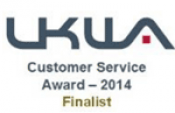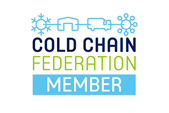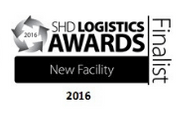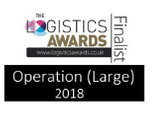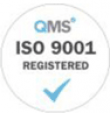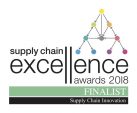
Food and grocery in the UK
In the UK, the food and grocery sector is one of the most diverse and sophisticated in the world, worth nearly £185bn per year. It accounts for over half of all UK retail spend. The Big Four UK retailers – Tesco, Sainsbury’s, Asda and Morrisons account for 67% of this spend. Supermarkets choose their products from all over the world, moving between countries and suppliers as the seasons change. There is mounting evidence that supermarket chains are not following best practice in the area of human rights. Respect for labour laws, safe and secure working conditions and paying a living wage are not only human rights imperatives, they are good for business. In a crowded market, retailers need to stand out for the right reasons and put their values on display. Brand reputations are fickle, they can be destroyed easily.
What are the criticisms?
In June 2018, Oxfam issued a damning report on the state of the retail sector. It marked the launch of Behind the Barcodes, a new global campaign urging supermarkets and governments to crack down on inhumane working
conditions, increase transparency on where food comes from, tackle discrimination against women, and ensure a larger share of what consumers spend on food reaches the people who produce it.
Matthew Spencer, Director of Policy for Oxfam GB: “It’s shocking that so many of the farmers and workers producing food for our supermarket shelves are going hungry themselves. Our biggest supermarkets are squeezing the price they pay their suppliers, resulting in huge, hidden suffering amongst the women and men who supply our food and trapping them in poverty. Global businesses can help lift millions of people out of poverty, but the food industry currently rewards shareholder wealth over the work of millions of women and men, with supermarkets ignoring the hidden suffering behind their food supply chains. When companies get serious about supporting decent work they can help transform lives in some of the poorest parts of the world.”
Oxfam is not alone. In April 2018, The Ethical Consumer searched the Tesco website, tescoplc.com, for evidence of the company’s sustainability reporting and found middling references to forests, palm oil, marine sustainability, farmlands, freshwater and waste and recycling but little on human rights issues.
What the leading companies are doing
Leading food companies in the field of social sustainability reporting such as Unilever, Nestle and Mondelez follow the 2011 United Nations Guidelines on sustainability issues. These UN principles establish the responsibility of businesses to respect human rights, avoid infringing them and to remedy any of their negative impacts.
“Consumers increasingly want to know about human rights in the supply chains of companies they buy from, and what those businesses are doing to address abuses. We are very clear that human rights abuses have no place in our supply chains”. Nestle.com
Best practice among leading companies includes:
- Having a published policy on your approach to human rights
- Processes that monitor performance of suppliers within the supply chain against pre-defined targets
- Evidence of consideration of human rights impacts when making investments and when selecting suppliers
Not every large food and grocery supplier or retailer has these best practices in place. Tesco and Sainsbury’s have a vaguely worded paragraph that gives no indication of application of a, b, and c above. “Our customers should have peace of mind that the products that they buy at Tesco are sourced with respect for both the environment and the people who make or grow them”. Tescoplc.com
Benchmarking
Annually KPMG issues a report on the quality and content of sustainability reporting. The most recent survey conducted in 2017 shows that the majority of the world’s largest companies now recognize human rights as a business issue. 90% of the top 250 listed companies globally acknowledge the issues. Only 69% of the largest companies in the retail and food and beverage sectors consider human rights as an issue compared to leading sectors such as mining and the automotive industries.
Oxfam’s new Supermarkets Scorecard rates and ranks the most powerful UK supermarkets on the strength of their policies and practices to address human rights and social sustainability. The Scorecard sets challenging benchmarks based on robust international standards and widely recognized best practice on transparency and accountability, and on the treatment of workers, small-scale farmers and women in supply chains. Should the targets of their campaign take action, they have the opportunity to rise up and lead the way.
Modern slavery
There are many ways that people can be exploited or forced to work for little or no pay. The UK’s Modern Slavery Act 2015 is designed to combat the problem where men, women and children of all ages and backgrounds are victims of human trafficking, forced labour, domestic servitude or debt bondage. In the past few years there have been investigations into industries tainted by human rights issues such as the Thai shellfish industry, the South African wine industry and the Scottish and Irish fishing industries.
Oxfam is asking the UK government to:
- Enforce compliance with the Modern Slavery Act
- Support the adoption of a UN binding treaty on business and human rights that holds companies legally accountable for human rights violations along their supply chain
- Set out how the government will measure decent work rather than employment levels alone
- Reform company law so that directors must act primarily in the interests of all stakeholders not just their shareholders
- Oxfam is also engaging with the financial and investor community to engage companies on supply chain transparency and human and labour rights issues.
The benefits for companies of reporting on their human rights policy and progress go beyond addressing financial risk and compliance. Publicising their positive actions in social sustainability can be really useful fostering customer loyalty and trust. Negative publicity can be extremely damaging.






